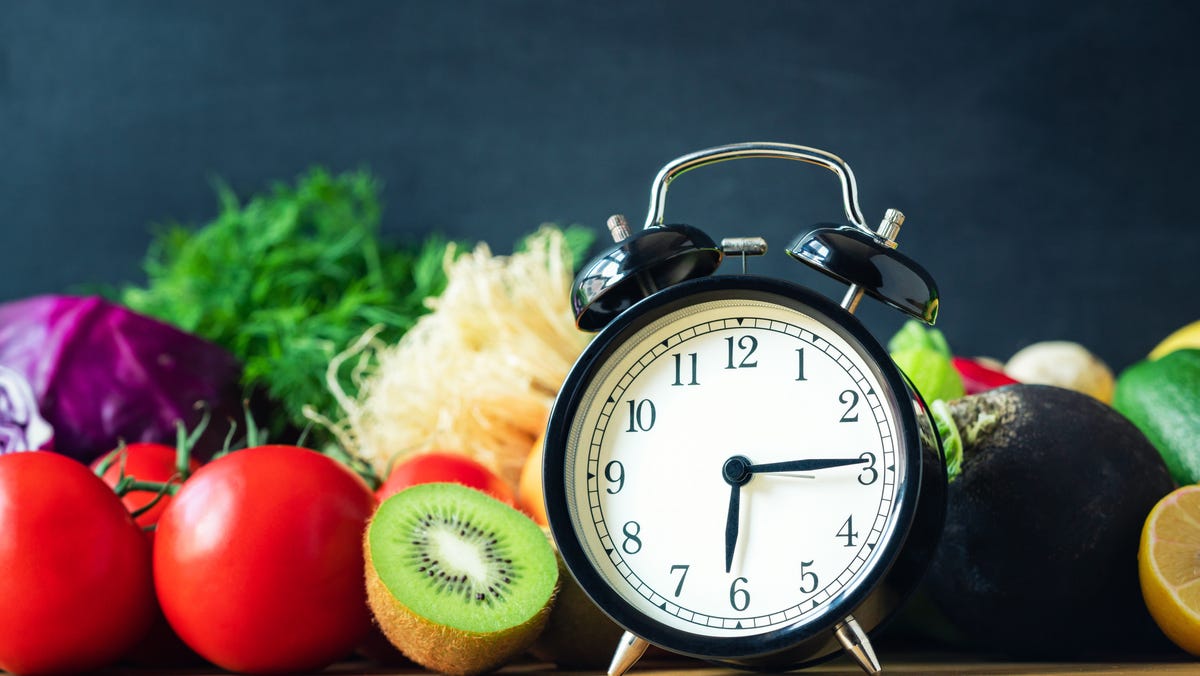
Nutrition expert explains how green tea can improve your health and mood
Drinking green tea on a daily basis can do everything from reducing inflammation to improving your mood.
You know what kinds of foods make for healthy meal options. But does the time of day you eat actually impact your health, too?
“I’ve been getting this question for as long as I’ve been practicing as a registered dietitian, and the answer is nuanced,” Marisa Moore, MBA, RDN, LD, a registered dietitian nutritionist and author of “The Plant Love Kitchen,” previously told USA TODAY.
Here’s what nutrition experts want you to know about meal and snack timing.
How often should you eat?
You know the typical meal plan for many: breakfast, lunch, dinner and snacks in between.
But It’s important to note that everyone’s schedules are different, so it’s OK if your meals aren’t strictly regimented every day.
There’s evidence to suggest it’s beneficial to eat more food earlier in the day, and to eat dinner no less than two to three hours before going to sleep (or laying down in general). Going horizontal too soon after a meal can be triggering to your digestive system, experts say.
“Eating large meals too close to bedtime can interfere with digestion and sleep quality,” Moore said. “This is especially important if you already have or are trying to prevent gastric reflux, which can be exacerbated by late night meals – especially ones containing spicy, acidic or fatty foods.”
Intermittent fasting has also risen in popularity over the last few years: a diet plan that essentially restricts certain time periods as eating or fasting windows. According to Johns Hopkins Medicine, that can vary from an eight-hour eating window (11 a.m. to 7 p.m., for example) to an extreme schedule that restricts a person to eating only one meal a day for two days out of the week.
There isn’t much evidence to suggest that this diet is particularly healthy, but there is some research that has shown intermittent fasting to be linked to cardiovascular issues. One study of 20,000 peopler found that those who followed intermittent fasting had a 91% higher risk of death from cardiovascular disease. Johns Hopkins Medicine also recommends anyone who is under 18, pregnant or breastfeeding, has Type 1 diabetes or an eating disorder to avoid intentionally fasting for regular periods of time.
“For some people, intermittent fasting helps them stay in a calorie deficit simply by allowing for less opportunity to eat,” registered dietitian Jamie Nadeau previously told USA TODAY. “But research hasn’t proven it to be any more effective than traditional lifestyle and diet changes.”
What is the healthiest eating schedule?
So if intermittent fasting isn’t the answer according to health experts, what is? Unfortunately, there’s no easy one-size-fits-all approach to a healthy eating schedule. What may be healthiest for one person could be unhealthy for another.
“The strongest research shows that you can improve your health by eating a balanced diet with fruits, veggies, whole grains, lean proteins and healthy fats, along with staying active and engaging in healthy lifestyle choices,” Nadeau said. “I recommend focusing on overall balanced meals with adequate protein and fiber, practicing eating mindfully and honing in on hunger and fullness.”
In general, nutrition experts recommend keeping things simple when it comes to your meal times. Eat when you’re hungry, and try to make sure each meal or snack is well-rounded to keep you satisfied, satiated and full of nutritious options.
“Restrictive dieting is really unnecessary and usually backfires for most people,” Nadeau said. “Not only do most people gain weight back after the diet becomes unsustainable, but many end up with disordered behaviors around food. … It often leaves you feeling like something is wrong with you or that you lack willpower, when really it’s the diet setting you up to fail.”

